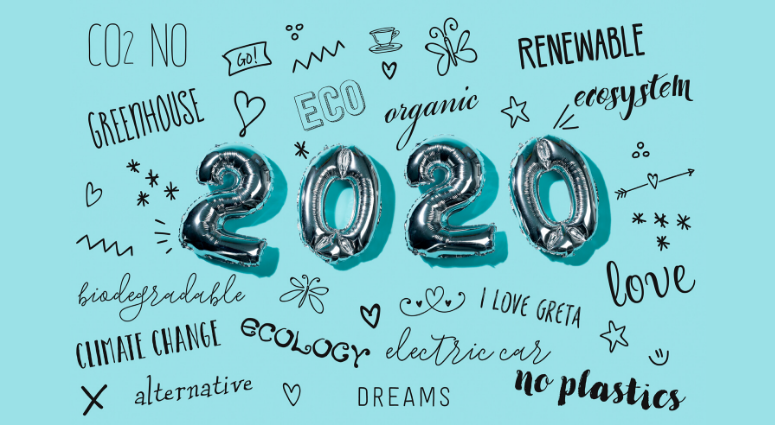
The secondhand clothing industry surpassed fast fashion in growth for the first time. Businesses and banks started calculating carbon costs. And though we may not have started growing burgers on trees, more and more people are opting for plant-based meats.
“Educate yourself,” suggested Jared Pashko of Philadelphia, a solar sales consultant with Solar States. “Learn that going solar is good for the pocket as well as for the environment. Learn that there are laws that will make a big environmental impact that need your support. Learn that you can insulate your attic with old newspaper clippings and drastically reduce your heat offset.
“There are so many useful tidbits that you can pick up along the way. We often are looking for the one big resolve-all solution, and maybe if we all consistently make some small, incremental steps in our daily lives, we’d make a lot of progress as a community.”
Here are some more resolutions we collected in recent conversations with people who work in businesses or organizations in the Philadelphia area that focus on solutions to some gnarly environmental problems. If you have the dedication, you can find some inspiration below:
“When you’re driving and leaving the stoplight, you don’t need to accelerate so much. That’s where everybody’s inefficiency comes from. If you simply accelerate just a little bit less, then you increase your miles per gallon. If everybody would do that, we’d significantly reduce our vehicle energy expenditure.”
“Another way to get rid of the plastic: bar soap for your body, bar soap for your shampoo, even conditioner bar soap is out there. You’ll get rid of a lot of plastic bottles for personal products that way.”
“The factory farming industry is very wasteful and impacts not only specific animals but the environment, taking out massive quantities of land and water. So try to cut your consumption of meat — even just a Meatless Monday will make a difference.”
“Add a rain barrel to your gutter system.”
“Become more educated about the climate crisis and realize that there are things that you can do. It can be incredibly terrifying when you think about it, but once you learn how you can help, it becomes a little less scary. Attend a strike for climate — there’s going to be a global strike in April, so mark it off on you calendar and get your voice out there and get the message that we’re fighting for out there.”
“Clean your plate!”
“We are betting on democracy to solve the climate crisis. Call your legislator and ask them: Please co-sponsor HR 763, the Energy Innovation and Carbon Dividend Act.”
“Take the time to think about your own energy usage and reflect on that a little bit to see where you are and are not being wasteful. And then, you can start making some improvements.”
“Basic resolution is turning off my appliances, turning down my heat when I’m not going to be home — they make a difference. We research usage rates — for example buildings that are trying to go green — and yet we see occupants don’t do anything to change their daily habits. That’s inspired me to pay more attention to mine.”
“My 2020 resolution is to have a conversation with at least one new person every week about the urgency of the climate crisis and ways they can get involved. The more we have these conversations, the more people we can mobilize to join the fight for a livable climate and a future powered by 100% renewable energy.”
